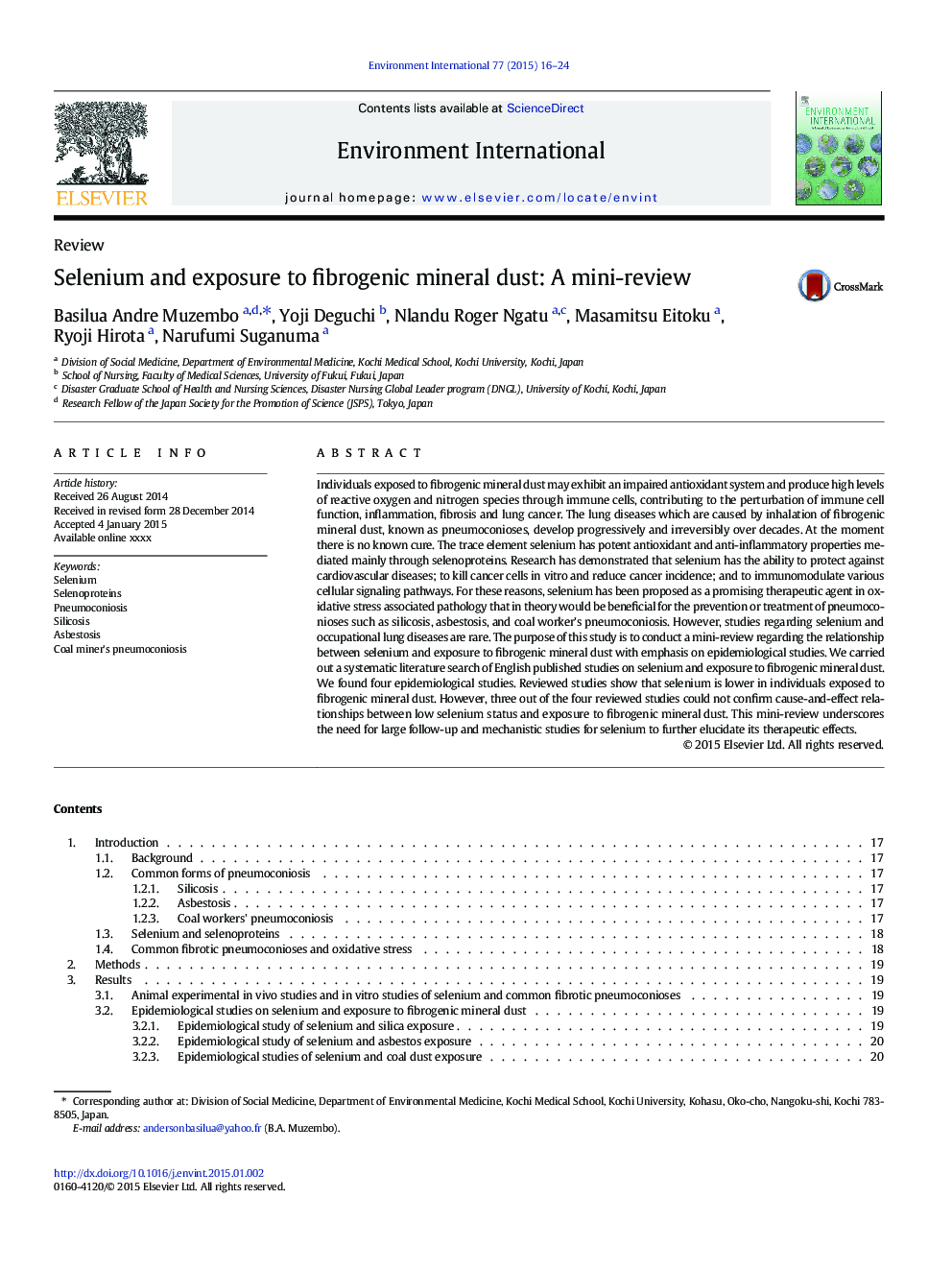| Article ID | Journal | Published Year | Pages | File Type |
|---|---|---|---|---|
| 6313660 | Environment International | 2015 | 9 Pages |
Abstract
Individuals exposed to fibrogenic mineral dust may exhibit an impaired antioxidant system and produce high levels of reactive oxygen and nitrogen species through immune cells, contributing to the perturbation of immune cell function, inflammation, fibrosis and lung cancer. The lung diseases which are caused by inhalation of fibrogenic mineral dust, known as pneumoconioses, develop progressively and irreversibly over decades. At the moment there is no known cure. The trace element selenium has potent antioxidant and anti-inflammatory properties mediated mainly through selenoproteins. Research has demonstrated that selenium has the ability to protect against cardiovascular diseases; to kill cancer cells in vitro and reduce cancer incidence; and to immunomodulate various cellular signaling pathways. For these reasons, selenium has been proposed as a promising therapeutic agent in oxidative stress associated pathology that in theory would be beneficial for the prevention or treatment of pneumoconioses such as silicosis, asbestosis, and coal worker's pneumoconiosis. However, studies regarding selenium and occupational lung diseases are rare. The purpose of this study is to conduct a mini-review regarding the relationship between selenium and exposure to fibrogenic mineral dust with emphasis on epidemiological studies. We carried out a systematic literature search of English published studies on selenium and exposure to fibrogenic mineral dust. We found four epidemiological studies. Reviewed studies show that selenium is lower in individuals exposed to fibrogenic mineral dust. However, three out of the four reviewed studies could not confirm cause-and-effect relationships between low selenium status and exposure to fibrogenic mineral dust. This mini-review underscores the need for large follow-up and mechanistic studies for selenium to further elucidate its therapeutic effects.
Related Topics
Life Sciences
Environmental Science
Environmental Chemistry
Authors
Basilua Andre Muzembo, Yoji Deguchi, Nlandu Roger Ngatu, Masamitsu Eitoku, Ryoji Hirota, Narufumi Suganuma,
